Before You Celebrate the Yes, Make Sure It's Backed By Execution

In a negotiation, not all yeses are created equal. Sometimes ‘yes’ is said to make you stop asking, and it’s not really backed by action or execution.
How do we tell the difference so we don’t end up feeling stuck in limbo or getting strung along?
Before we pat ourselves on the back and break out the champagne, it’s critical that we make sure what we’re excited about is a solid win and not an empty promise.
What structures can we put in place to make sure we get what we negotiated for?
In this episode, I’m going to share what we have to do before we get excited about a great negotiation.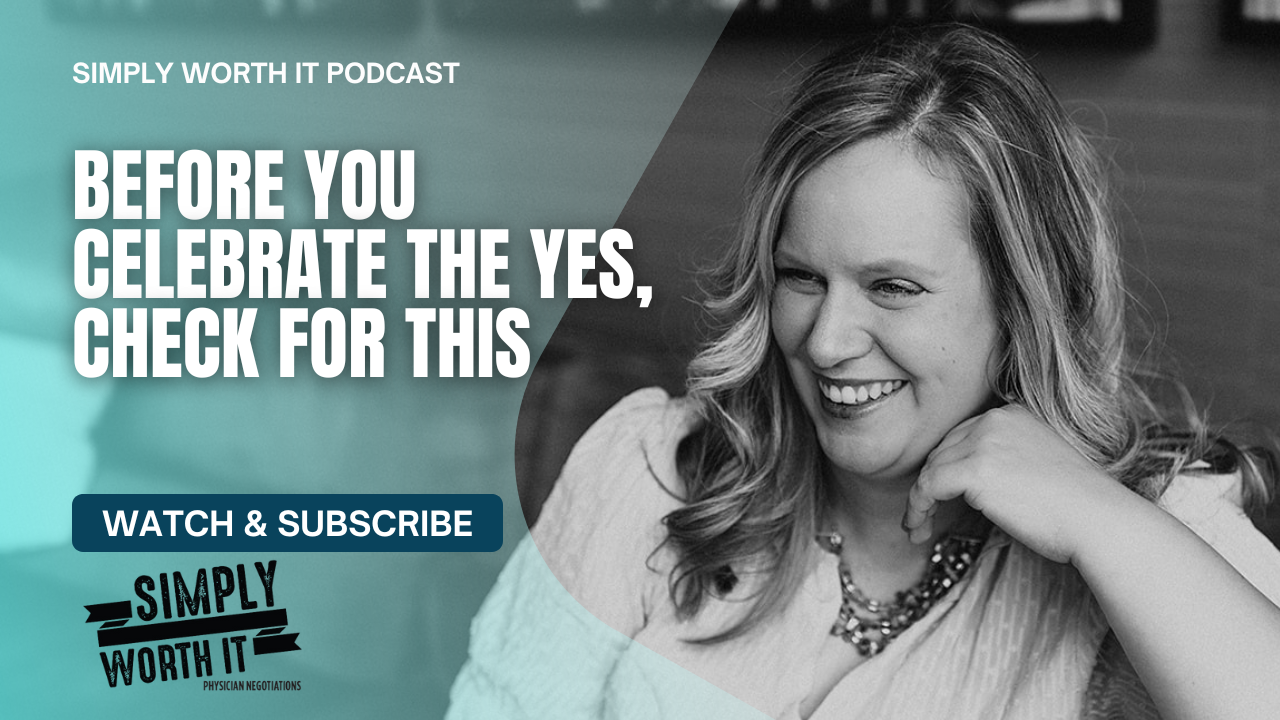
Three Things You’ll Learn In This Episode
- How to identify points of contact early
How do we pre-plan for a point to circle back or touch base? - Why pre-planning for contact is so critical in a new job
There’s nothing worse than getting a ‘yes’ and then feeling like you’re stuck in limbo, so how do you make sure the ball is actually moving forward? - How to set the tone for the relationship you’ll have...
You Can't Control Other People: 2 Ways to Cope with This & Still Show Up as a Boss
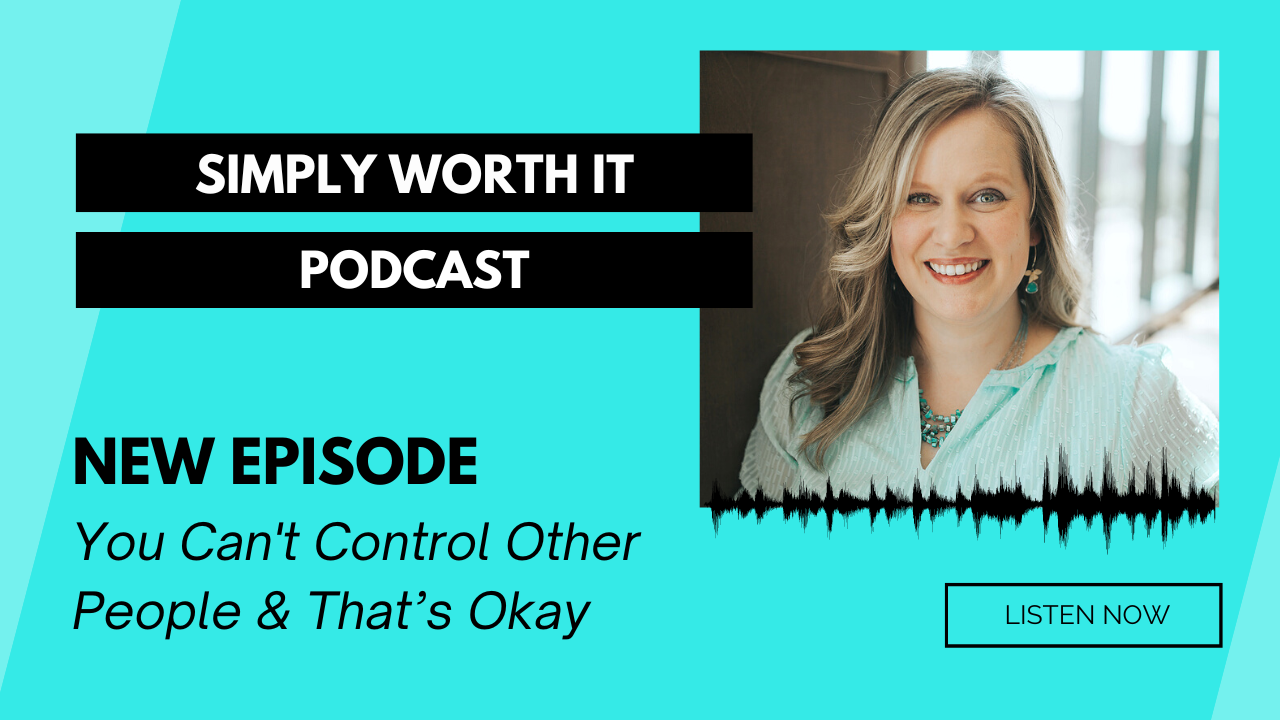
One of life’s biggest truths is that we have very little control over other people and how they show up and act.
Even in a negotiation, we can have all our ducks in a row and the best intentions, but we still can’t control how people respond to us advocating for ourselves.
The real challenge is accepting this and making sure we don’t let that mean anything about who we really are.
How do we make sure other people’s responses don’t take away our power?
In this episode, I offer two simple responses that save us from the frustration and disappointment of us not being in control of other people.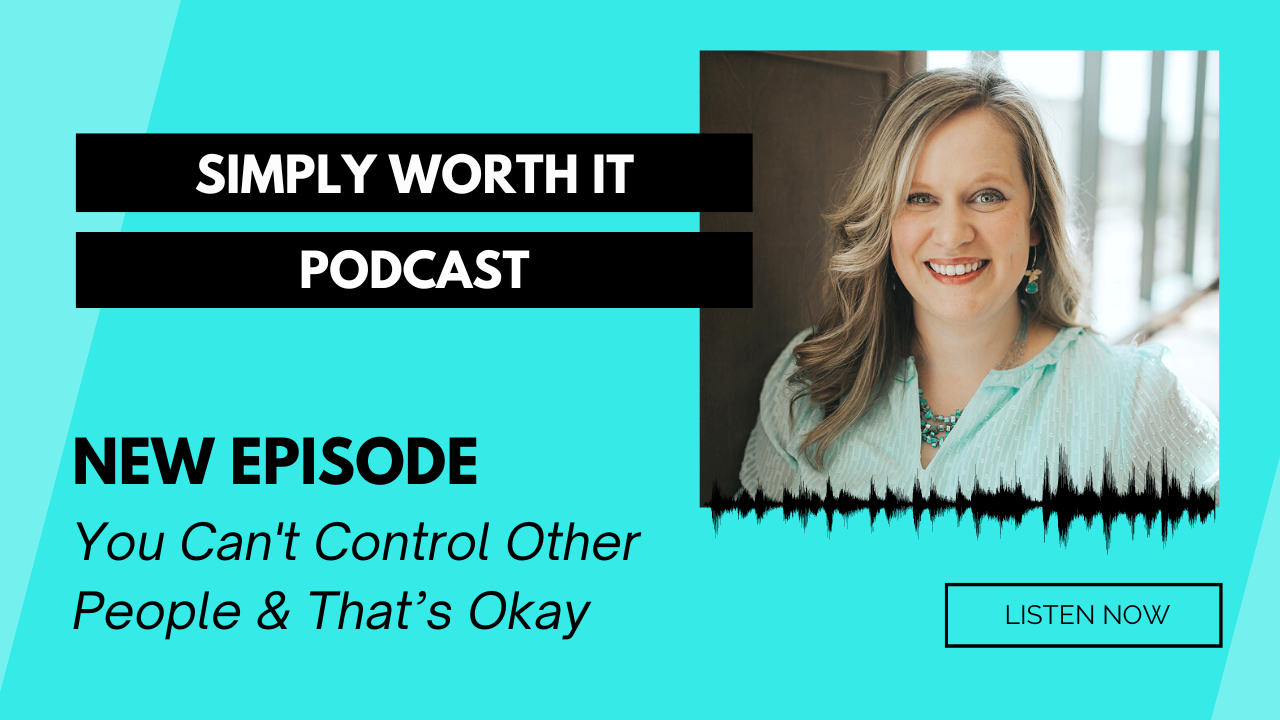
Three Things You’ll Learn In This Episode
- How to blast through second-guessing and self-doubt
There’s always a risk of backlash when we set boundaries, so how do we overcome feeling bad about that? - The mindset shift that will save you from a ton of despair
“People are allowed to be wrong about me.” Why is this statement and belief so powerful? - How to advocate from a place of strength
How do we ...
Multi-Party Negotiations: How to Create a Win-Win Scenario for Everyone
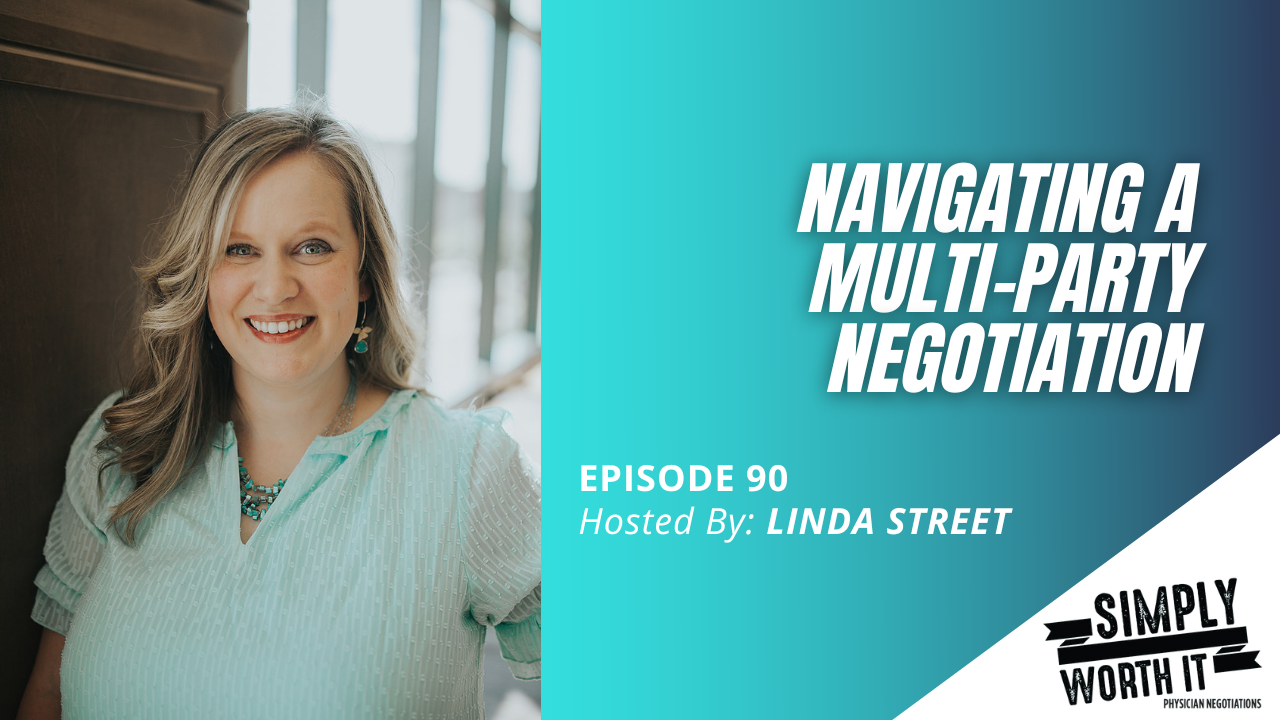
For many doctors, a negotiation isn’t as simple as a one-person to one-organization scenario - collective negotiations are pretty common.
There are many ways things can get a little dicey when multiple parties with different priorities, goals, and needs are involved.
Whether you’re negotiating in a space with multiple stakeholders or negotiating on behalf of a group, there are things we need to be mindful of to make it beneficial for everyone.
In this episode, I’ll share 3 key areas we need to pay attention to, and how we can negotiate as effectively and efficiently as possible.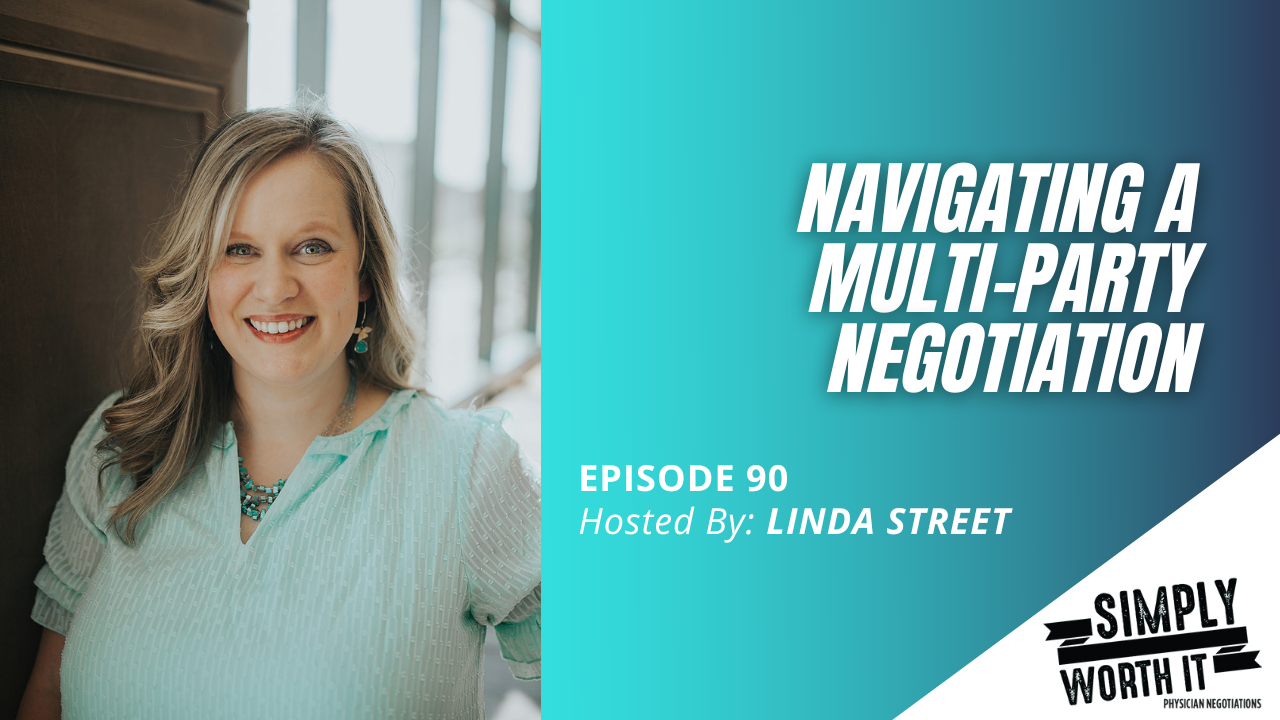
Three Things You’ll Learn In This Episode
- Why collective negotiations hit a wall and how to avoid it
How do coalitions, process management issues, and fluctuating BATNAs play into a group negotiation? - How to eliminate resentments before they even arise
How do we deal with differences in priorities and goals in a way that stops us from feeling we got the short end of the stick? - How to efficiently manage al...
How to Overcome Overeating, Trust Your Body & Keep the Weight Off Forever with Dr. Katrina Ubell

Negotiation and self-care routinely go hand-in-hand.
Feeling like our best selves can make it easier to focus our attention on our negotiations and negotiating a job that works for us helps us to have the time and energy to truly focus on ourselves.
However, the diet programs we see everywhere disconnect us from our bodies, force us to eat food that doesn’t taste good, and ultimately lead us right back to where we started.
Can we eat in a way that supports our bodies, creates positivity around food, and gives us the life results we want without white-knuckling through another problematic diet?
Can we eat in a way that supports our bodies, creates positivity around food, and gives us the life results we want without white-knuckling through another problematic diet?
So how do we shift to a more peaceful existence with food?
In this episode, I’m joined by physician and master certified life coach, CEO at Weight Loss for Busy Physicians, Dr. Katrina Ubell.
She talks about her new book, “How to Lo...
Feeling Crappy After Your Negotiation? How to Change Your Mindset & Redefine Winning For You
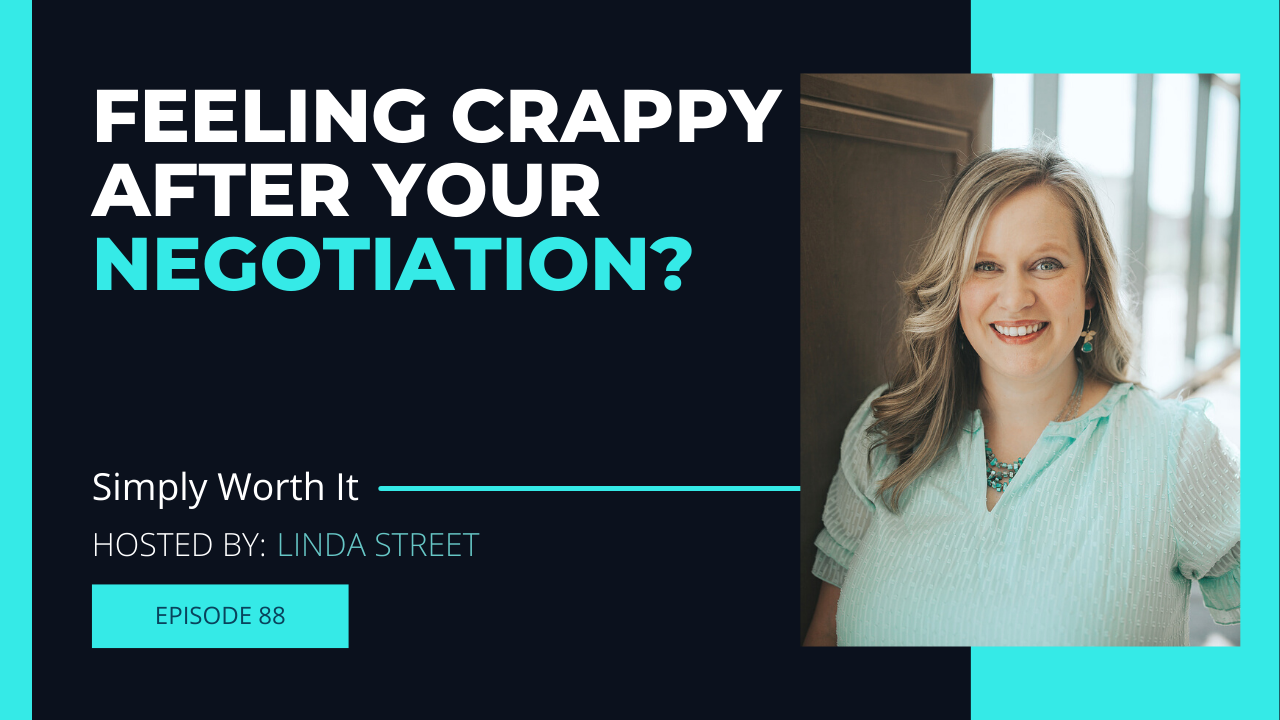
You walk out of a negotiation, and instead of feeling hopeful and excited, you have a deep, sinking feeling and the nagging question - “Did I blow it?”
As physicians, we navigate our fair share of situations that leave us feeling crappy but struggle to apply that mindset to other aspects of our jobs.
Whether or not it’s the reality, it’s normal to believe that our negotiation went terribly, and then descend into a pit of catastrophic worst-case scenarios.
Thankfully, there are ways to work around this before the negotiation and deal with the emotional fallout afterward..
What do we need to focus on when negative feelings arise?
In this episode, I talk about the negative emotions that can arise from a negotiation and the best way to deal with them.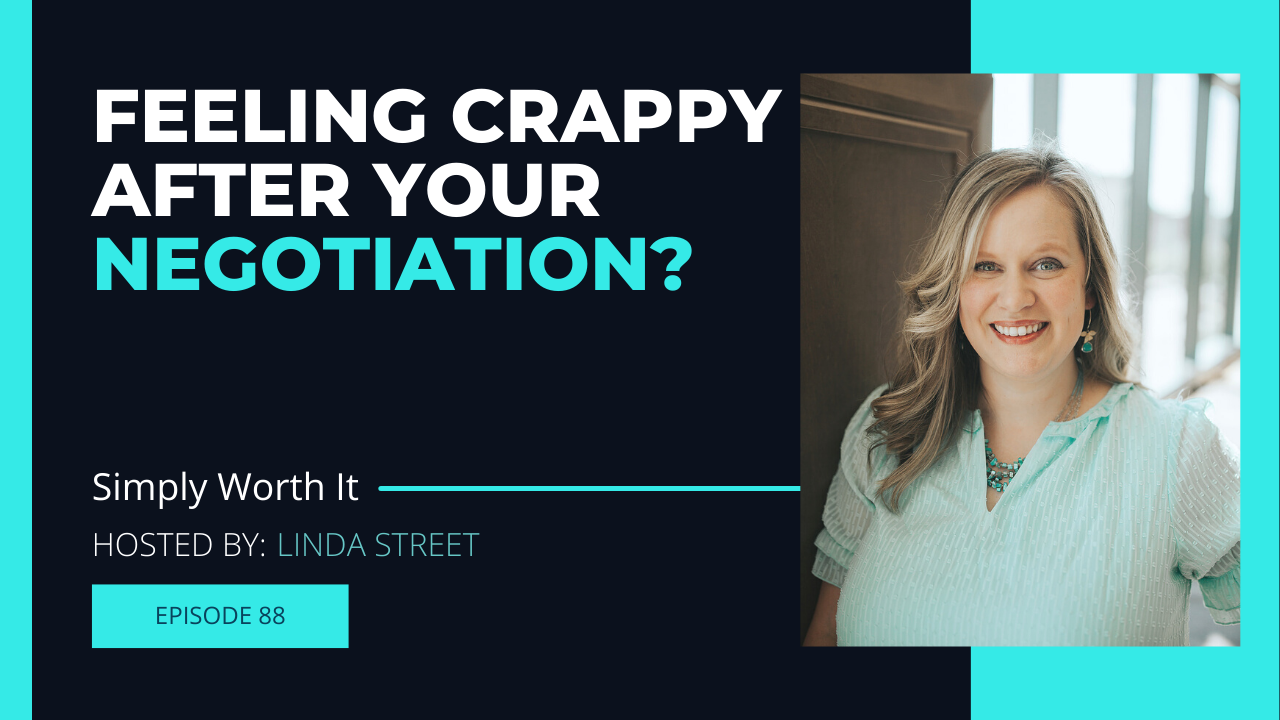
Three Things You’ll Learn In This Episode
- The emotional side of a negotiation
Why do negotiations often trigger negative emotions and fears of the worst-case scenario? - What matters most in a negotiation
How do we back ourselves to the fulle...
Quiet Quitting & Quiet Firing Are Both Dangerous & Damaging...How Do We Fix Them?

Regardless of the reason, only doing the bare minimum at work actually does us a huge disservice - why tread water in a place you hate when you can move on to something better?
Quiet quitting isn’t just a one-sided practice on the employee side, it has an employer-driven sibling known as quiet firing, which shows up a lot in our industry.
What do you do when your job deliberately tries to drive you to quit?
In this episode, I’m going to talk about both sides of the coin and how they affect our careers.
Three Things You’ll Learn In This Episode
- Quiet quitting vs. setting healthy boundaries
How do we show up fully at our jobs while also ensuring we’re not doing it at our own expense? - What quiet firing feels like
What are the subtle and insidious ways a job can make you doubt your capabilities and make you want to get out? - How to protect yourself at work
What options do we have if we find ourselves in a quiet firing environment?
The Lord of the Rings: What Can Frodo's Epic Quest Teach Us About Negotiation?
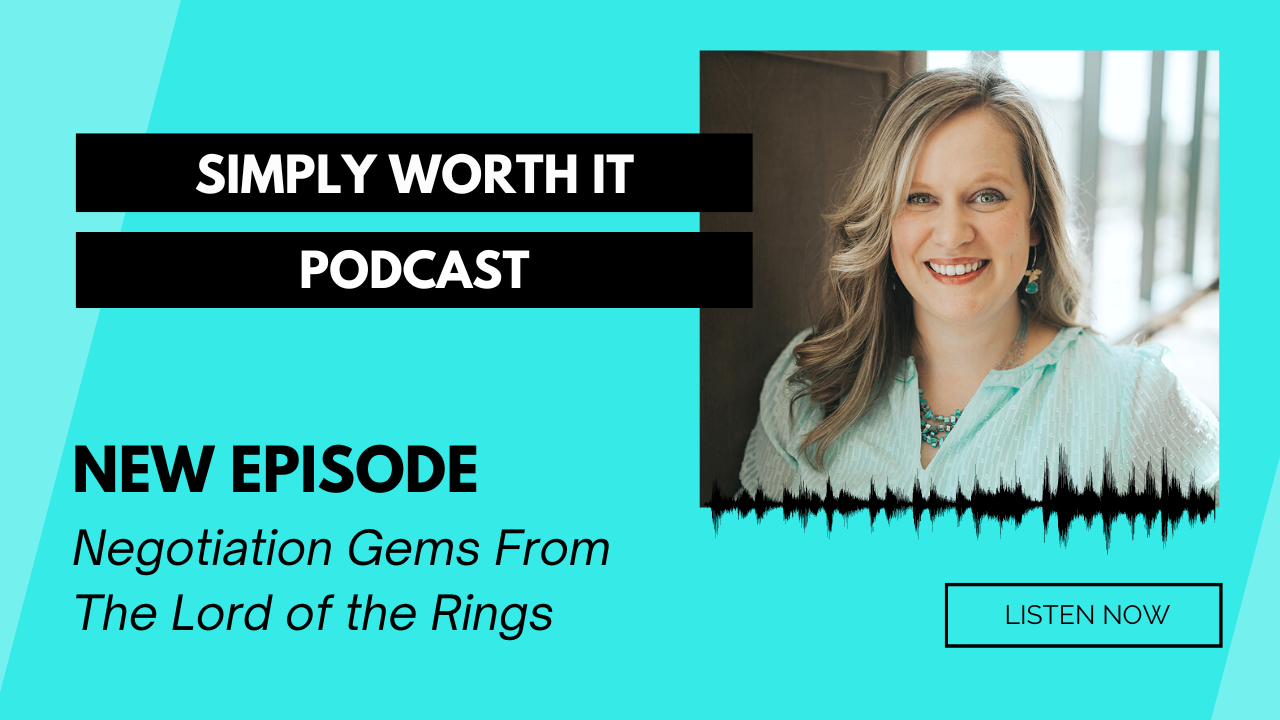
Navigating a negotiation is an epic but daunting quest to reach an important purpose - like Frodo Baggins’ journey to destroy the One Ring.
There’s so much about his journey that we can extract and apply to our own quest to get paid what we’re worth - from the resources we need, to the perils we’ll need to avoid to reach our destination.
In this episode, I’m going to share some negotiation nuggets that came out of my recent binge watch of The Lord of the Rings movies.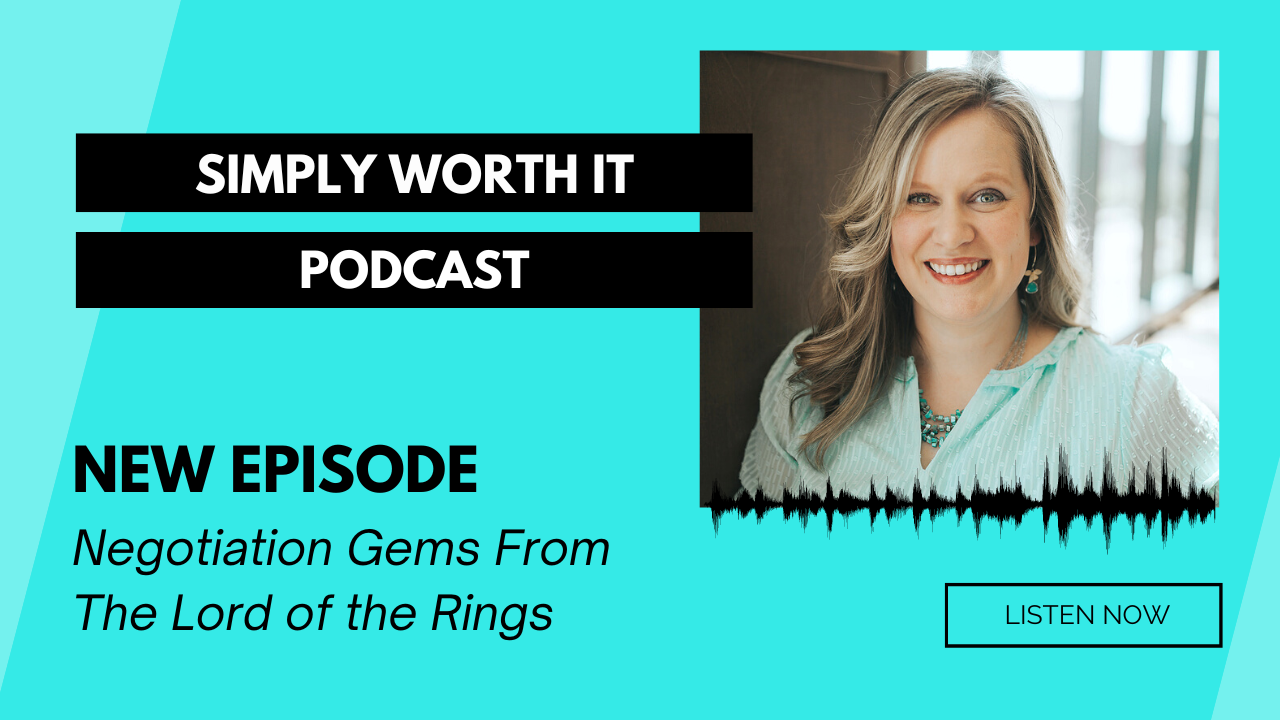
Three Things You’ll Learn In This Episode
- The resources we can use to better our outcome
Frodo needed a team to reach his destination, how do we assemble the people and resources that make it easier? - How to get ahead of obstacles
What readymade strategies and suggestions can we equip ourselves with to circumvent barriers? - Why we have to be careful about what we share
The ring entices and corrupts, so Frodo had to be careful who he could trust. How do we know who to trust in our own negotiations?
Quit or Stay? The Powerful Little Tool That Simplifies the Decision
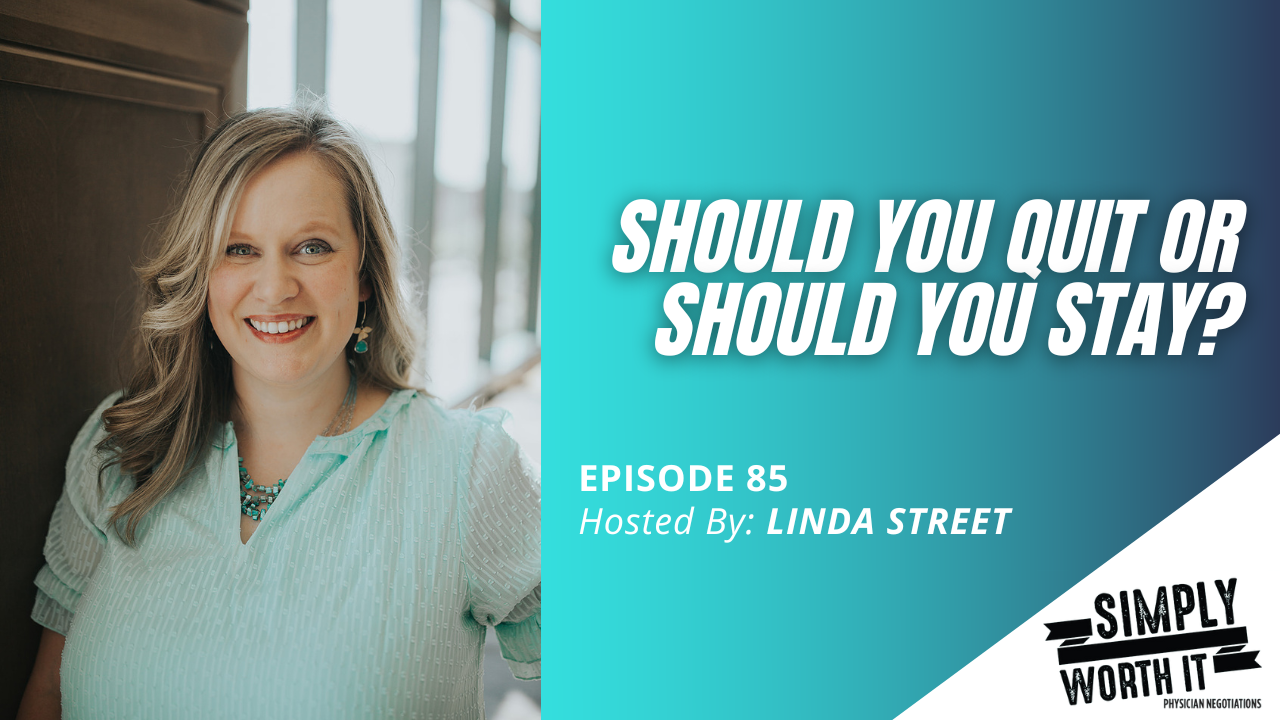
When a job is toxic and soul-sucking, quitting is a no-brainer, but what happens when the reasons to stay or go aren’t so obvious, and we’re unsure about the next step?
It’s hard to gain clarity on our next move until we critically evaluate the outcome, and sometimes it comes down to making a little list.
In this episode, I’m going to share a quick tool that will help you determine whether to quit your job or stay.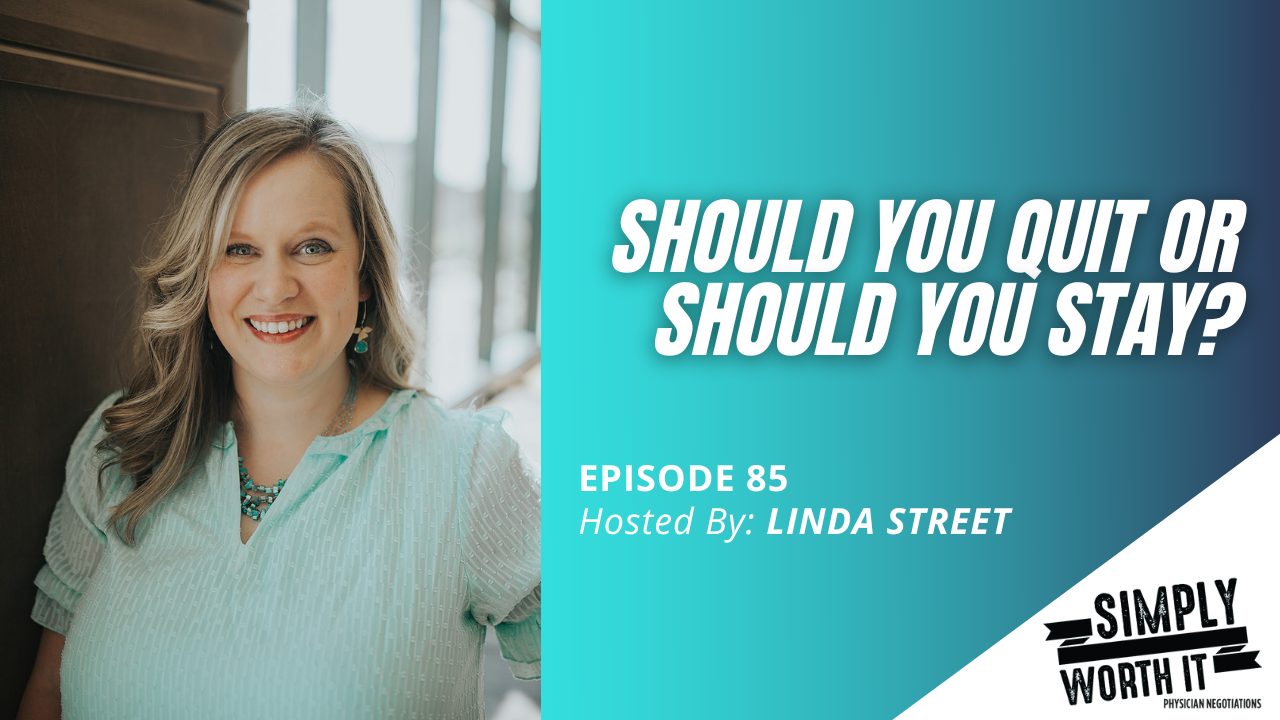
Three Things You’ll Learn In This Episode
- Why we have to go a few layers deep in our evaluations
Loss of income is usually at the top of the list of reasons why we choose to stay, but what if the income gap we fear is non-existent? - Why we don’t have to always think in multi-year stretches
Could changing our perspective on timeframes make it easier to decide what to do? - The truth about the current job market
Is the decision to quit way easier when there’s an abundance of worthy alternatives?
Guilt and Shame: The Ugly Cousins Keeping You From Advocating for Yourself
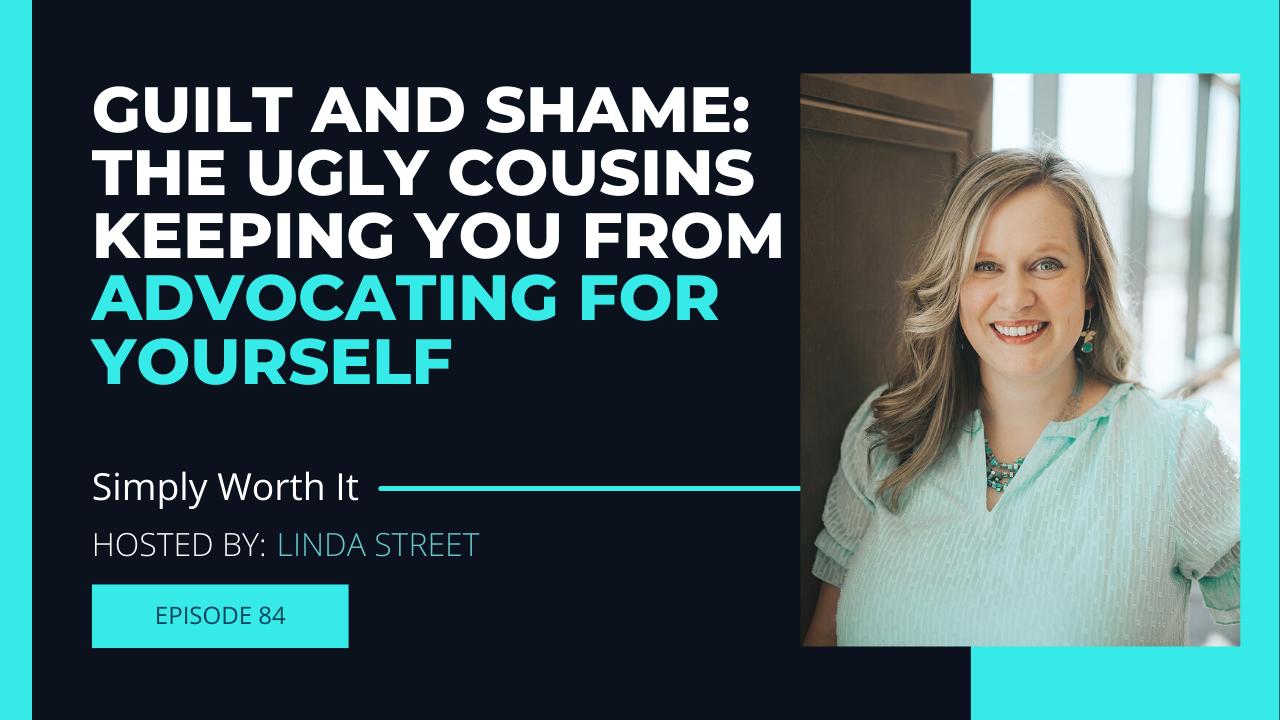
Guilt and shame aren’t emotions we typically associate with our negotiations, but these ugly cousins actually show up all over the place.
For starters, most of us feel guilty about asking for what we want, but that’s not the only way it manifests.
The other way these emotions creep in is more insidious but just as destructive.
When we realize we didn’t adequately advocate for ourselves in the past, we can spiral into guilt and shame very easily.
How do we overcome these emotions so we can get to a state that moves us forward?
In this episode, I talk about how guilt and shame hinder our success in a negotiation.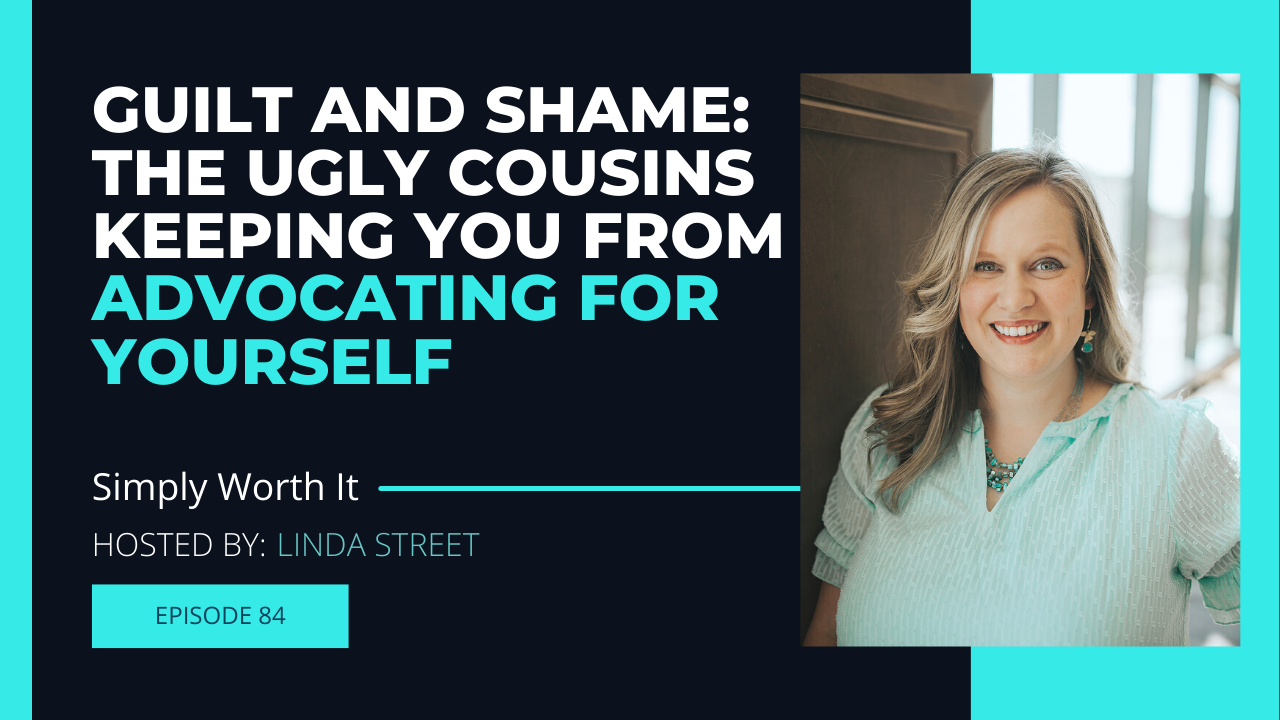
Three Things You’ll Learn In This Episode
- How guilt and shame present themselves
What do you do if you notice that you’re feeling guilt and shame during your negotiation? - The danger of spiraling into indulgent emotions
Can guilt and shame make us blind to the places we should rightfully advocate for ourselves? - How to cut short the spiral of guilt and shame
How do we nip guilt ...
Overworking is a Habit We Can Change: Getting Comfortable with Stillness with Dr. Kristi Angevine
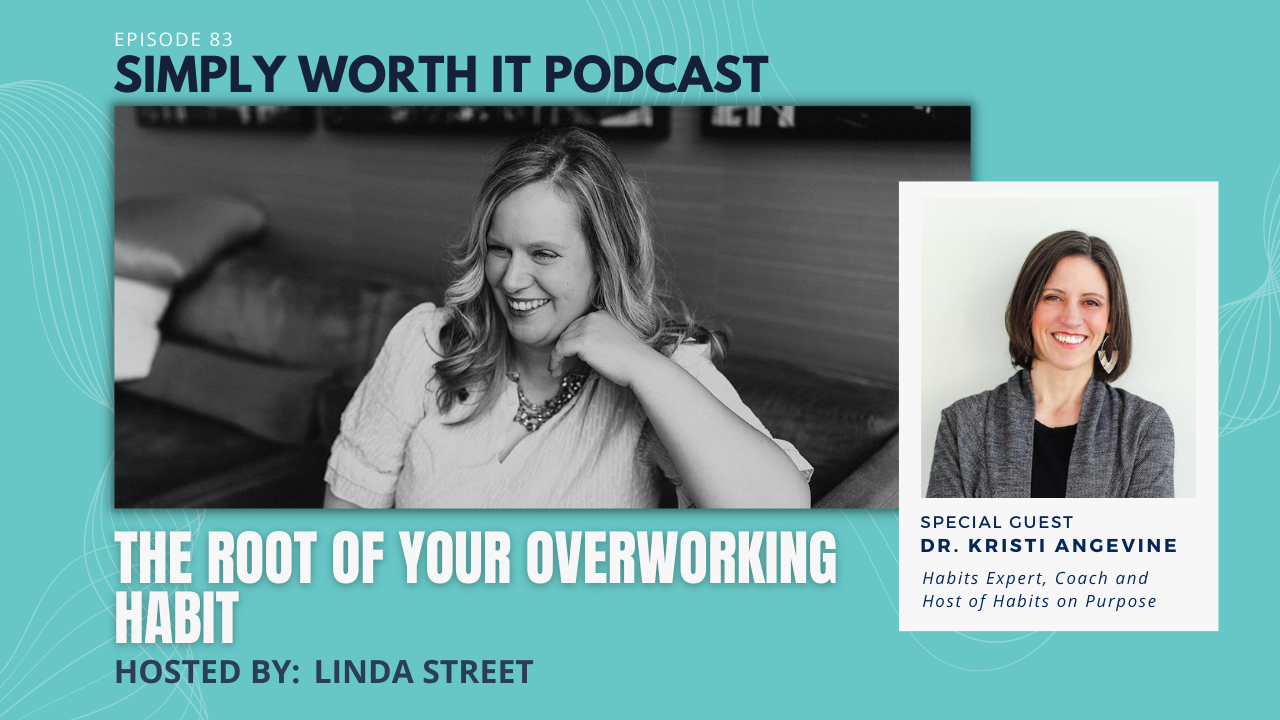
Anyone who has a tendency to overwork will tell you that it feels more like an innate way of functioning than a deeply-rooted but optional habit we can deconstruct and change.
Underneath our overworking habit and discomfort with doing less are long-held protective mechanisms that keep us in motion to our own detriment.
How do we uncover why we overwork, overcome our discomfort with stillness and install a healthier way of working into our default behavior?
In this episode, habits expert, coach and host of Habits on Purpose, Dr. Kristi Angevine returns to talk about the habit of overworking that’s highly prevalent in female physicians and the most self-compassionate way to overcome it.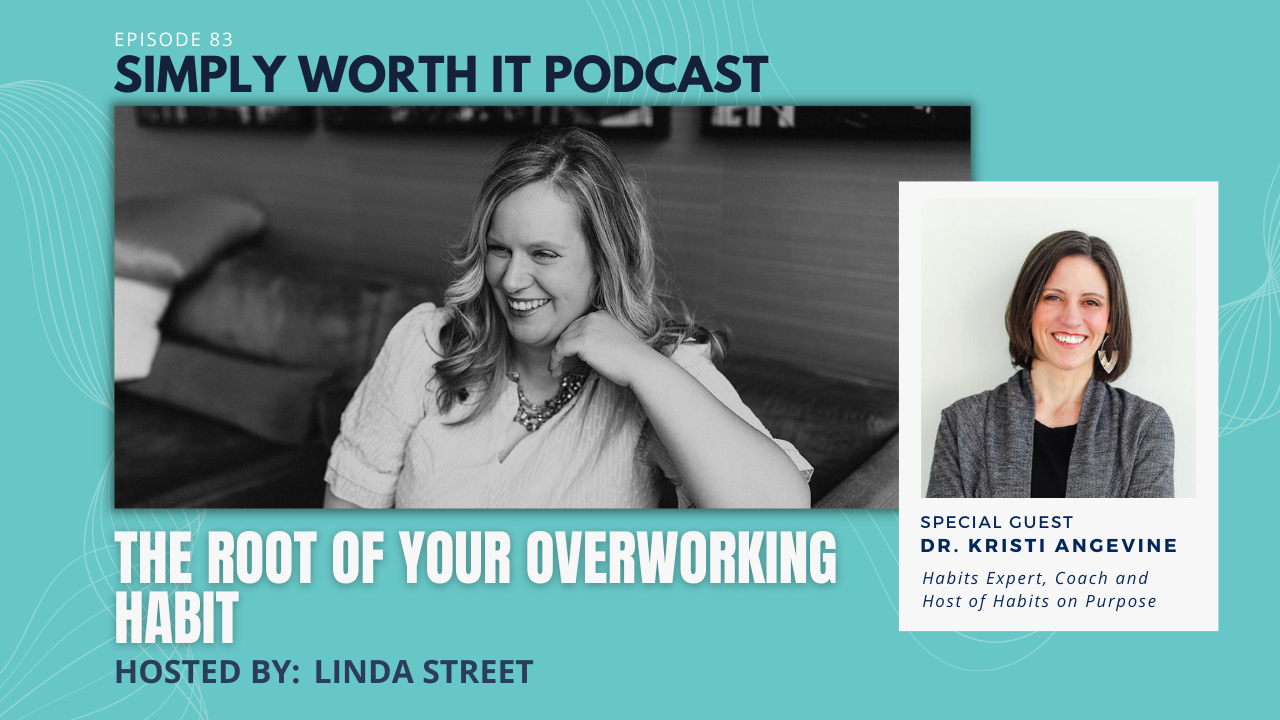
Three Things You’ll Learn In This Episode
- The most common reasons why people overwork
What line of inquiry can we use to lay groundwork for examining all the unique, individual reasons we overwork? - How to avoid the backlash of a bad habit
What is the most important part of the process we can’t bypass ...

